Fuel sensors for fleet management are essential for reducing costs, preventing theft, and improving efficiency. Discover how they transform fleet operations in India.
In India, fleet management is a critical aspect of ensuring business efficiency and profitability. As fuel prices continue to rise, fleet operators must adopt advanced technologies to control fuel usage, prevent theft, and optimize fuel consumption. Axel-Guard’s Fuel sensors and fuel monitoring systems for fleets are essential tools in this endeavor. These systems help fleet managers track fuel consumption in real-time, offering detailed insights into vehicle performance, reducing wastage, and ensuring better fleet fuel management in India. In this blog, we will explore why fuel sensors are indispensable for fleet operators in India and how they contribute to effective fleet management.
1. The Importance of Fuel Sensors for Fleet Management
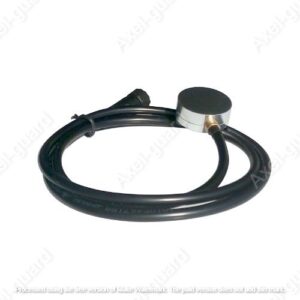
Fuel Sensors for fleet management play a pivotal role in improving the overall efficiency of fleet operations. These sensors allow real-time monitoring of fuel levels, ensuring that fleet managers can quickly identify discrepancies and take immediate action. With these sensors, fleet operators can monitor fuel consumption patterns, identify potential issues, and ensure that vehicles are performing at their optimal fuel efficiency. By implementing Fuel monitoring systems for fleets, businesses can better understand fuel usage and enhance their operational capabilities.
Fuel sensors not only offer better control over fuel usage but also provide critical data on vehicle performance, helping fleet managers make informed decisions regarding maintenance and route optimization. This real-time data proves valuable in managing the entire fleet and ensuring that fuel costs remain within budget.
2. How Fuel Sensors Improve Fleet Fuel Management in India
India’s unique climatic conditions and road infrastructure present challenges for fleet operators. Fuel monitoring systems for fleets are crucial in this context, helping optimize fuel consumption in hot and humid conditions, which are prevalent in many parts of the country. By using Fuel sensors for fleet management, operators can detect early signs of inefficiency or irregularities, such as fuel theft or engine problems, before they escalate into costly issues.
Effective Fleet fuel management in India is crucial to counter the rising costs of fuel. Fleet operators can track fuel usage across their entire fleet, optimize refueling schedules, and minimize downtime. This data-driven approach allows fleet operators to make informed decisions that improve the overall productivity of their fleet while ensuring the safety and security of their vehicles.
3. Preventing Fuel Theft with Fuel Sensors
Fuel theft is a common problem faced by fleet operators in India. With fuel sensors in place, fleet managers can monitor fuel levels in real-time, ensuring that any unauthorized fuel consumption is immediately detected. Fuel monitoring systems for fleets alert managers to discrepancies, enabling them to take action quickly. By using these systems, fleet operators can reduce fuel theft, improve security, and safeguard their assets.
These sensors also provide data that helps identify inefficient fuel usage patterns, allowing fleet operators to intervene before the problem worsens. With Fuel sensors for fleet management, fleet owners can ensure that their fuel usage is transparent and closely monitored, leading to fewer losses and greater profitability.
4. Enhancing Route Optimization with Fuel Sensors
Fuel sensors and fuel monitoring systems for fleets play an important role in route optimization. By monitoring fuel consumption in real-time, fleet managers can identify patterns that highlight inefficiencies in routing and scheduling. These insights enable fleet operators to optimize routes, reduce fuel wastage, and improve the overall efficiency of their fleet. In the context of Fleet fuel management in India, route optimization is key to reducing costs and improving vehicle performance.
Real-time data from fuel sensors helps fleet operators plan the most fuel-efficient routes, avoid congested areas, and ensure timely deliveries. As a result, businesses can reduce their environmental impact by decreasing fuel consumption and carbon emissions.
5. Monitoring Fuel Consumption in Real-Time
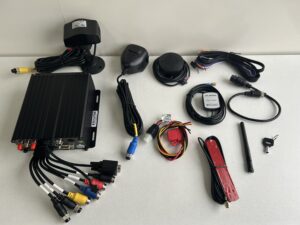
One of the most significant advantages of Fuel monitoring systems for fleets is the ability to monitor fuel consumption in real-time. These systems provide fleet managers with continuous data on fuel usage, allowing them to track performance and make data-driven decisions. By implementing Fuel sensors for fleet management, businesses gain better control over fuel costs and consumption, ensuring that every drop of fuel is used efficiently.
The real-time data provided by these systems helps fleet managers identify vehicles that are consuming more fuel than necessary. This information can be used to investigate potential issues, such as engine malfunctions, poor driving habits, or excessive idling, all of which can contribute to increased fuel consumption.
6. Fuel Sensors and Maintenance Scheduling
Fuel sensors are not only useful for monitoring fuel consumption but also play a role in scheduling maintenance. When a Fuel sensor detects irregularities in fuel usage, such as an increase in consumption or inconsistent readings, it can serve as an early indicator that maintenance is needed. Regular maintenance is essential for ensuring that vehicles run efficiently, and by using fuel sensors, fleet managers can prevent costly repairs and minimize downtime.
For Fleet fuel management in India, maintaining vehicles in optimal condition is critical. Fuel sensors help fleet operators schedule maintenance more effectively, reduce unplanned downtime, and extend the life of their vehicles.
7. The Role of Fuel Sensors in Driver Behavior Monitoring
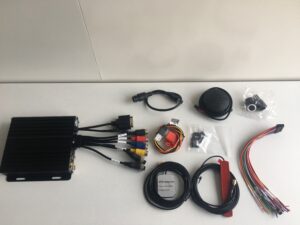
Driver behavior significantly impacts fuel consumption. Harsh braking, rapid acceleration, and excessive idling can lead to increased fuel usage. Fuel monitoring systems for fleets often include driver behavior monitoring features, providing valuable insights into how driving patterns affect fuel efficiency. Fleet operators can use this data to coach drivers on how to adopt more fuel-efficient driving habits, contributing to overall fuel savings.
Fuel sensors for fleet management help track these behaviors in real-time, enabling fleet managers to provide timely feedback and training to drivers. This proactive approach helps reduce fuel wastage and improves overall fleet efficiency.
8. Fuel Sensors for Compliance and Reporting
In India, regulatory compliance and reporting are essential for businesses, especially those operating fleets. Fuel sensors help fleet operators maintain accurate records of fuel usage, which are crucial for regulatory compliance. These systems generate reports that can be used for audits, taxation, and other legal requirements.
By using Fuel monitoring systems for fleets, fleet operators can ensure that they meet the necessary compliance standards while reducing administrative work. Automated reporting features also help save time and resources, making the entire process more efficient.
FAQ:
1. How do fuel sensors work? Fuel sensors detect and measure the amount of fuel in a vehicle’s tank. They provide real-time data to fleet managers, allowing them to monitor fuel consumption, identify discrepancies, and optimize fuel usage.
2. What are the benefits of fuel sensors for fleet management? Fuel sensors help reduce fuel wastage, prevent theft, optimize routes, improve vehicle performance, and ensure better compliance with regulatory standards.
3. Can fuel sensors detect fuel theft? Yes, fuel sensors can detect discrepancies in fuel levels, alerting fleet managers to unauthorized fuel consumption and helping to prevent fuel theft.
4. How do fuel sensors contribute to route optimization? Fuel sensors provide data on fuel consumption, which can be used to identify inefficient routes. Fleet managers can optimize routes based on this data to reduce fuel wastage and improve overall fleet efficiency.
5. How does fuel sensor data help in vehicle maintenance? Fuel sensor data can reveal patterns of excessive fuel consumption, indicating potential mechanical issues. This allows fleet managers to schedule maintenance before the problem worsens.
Conclusion:
Fuel sensors and fuel monitoring systems for fleets are indispensable tools for fleet operators in India. They help improve fleet fuel management in India by reducing fuel wastage, preventing theft, optimizing routes, and enhancing vehicle performance. By adopting these technologies, fleet operators can ensure better control over fuel costs, improve operational efficiency, and contribute to a more sustainable future.
If you’re a fleet operator in India, it’s time to consider upgrading your fleet management system with advanced fuel sensors and monitoring technologies. Axel-Guard offers cutting-edge fuel monitoring systems for fleets that provide real-time insights, optimize fuel usage, and enhance overall fleet performance.
Follow Us on Social Media:
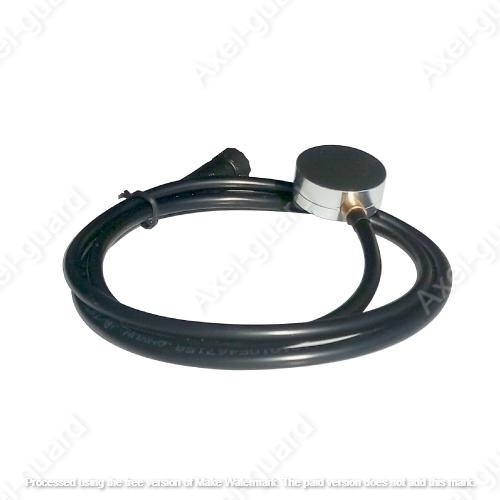

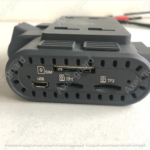
Each line feels like a stepping stone, leading the reader toward greater understanding and insight.